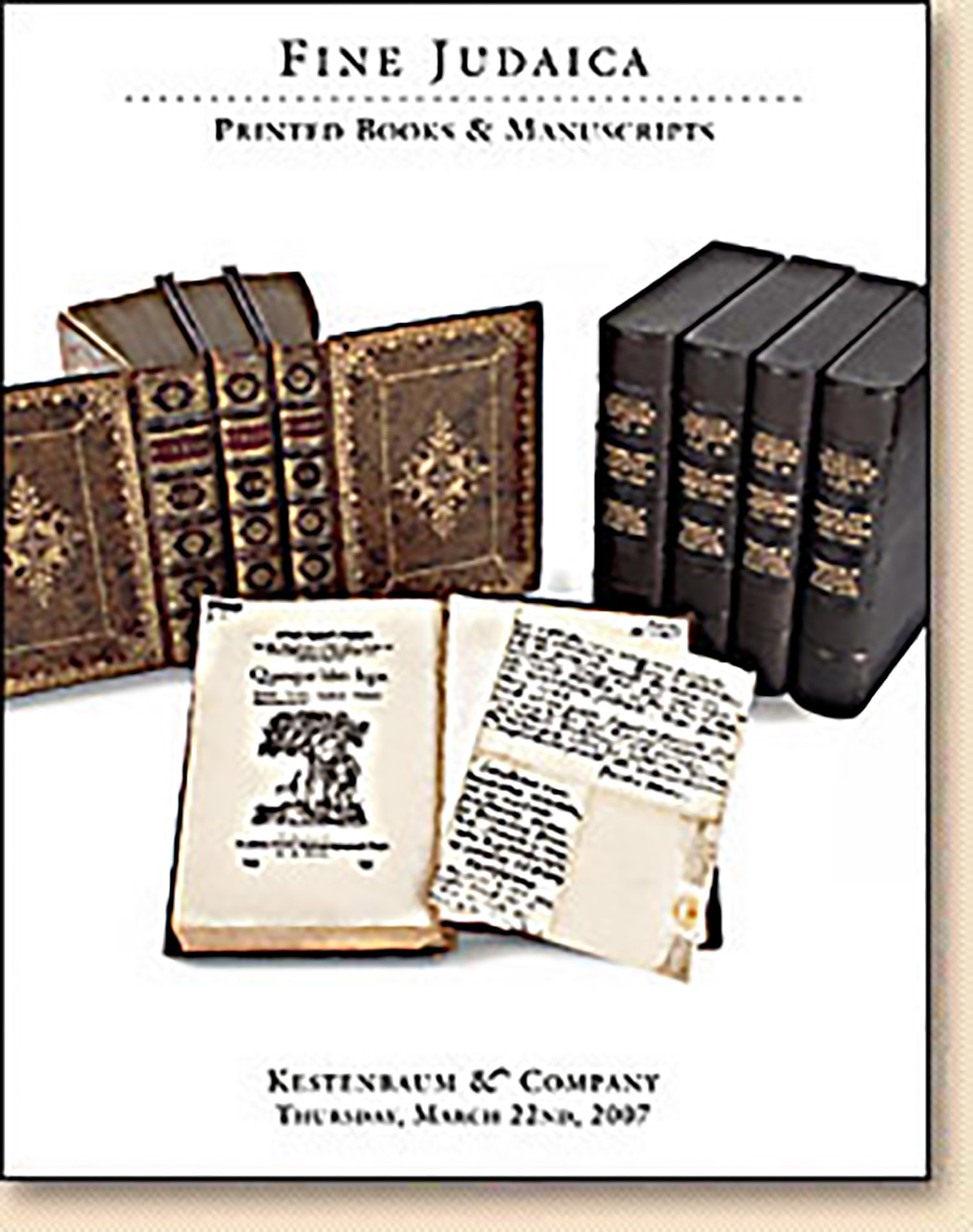David Franco Mendes. “Lecha yehemu E-l levavi u-mei’ai” [Epithalamium or Wedding Riddle]

AUCTION 36 |
Thursday, March 22nd,
2007 at 1:00
Fine Judaica: Printed Books & Manuscripts
Lot 234
(DUTCH JUDAICA)
David Franco Mendes. “Lecha yehemu E-l levavi u-mei’ai” [Epithalamium or Wedding Riddle]
(Holland): 18th Century
Est: $3,000 - $5,000
PRICE REALIZED $4,200
These riddles were a source of amusement and entertainment to the invited wedding-guests.
The three legs pictured here symbolize the Three Festivals of Passover, Pentecost and Tabernacles, referred to in Hebrew as “regalim,” which has the double entendre of “legs.” Above each leg is a finely-dressed woman symbolizing each respective Festival. From right to left, The first woman carries a banner depicting a lamb - representing the Paschal Lamb, and thus Passover. The next woman carries sheaves of barley and first fruits:- Pentecost (Shevu’oth) terminates fifty days of counting the Omer, a measure of barley, at which time the first fruits would be offered in the Temple in Jerusalem. And finally, the leftmost damsel displays in her hair a twig of a willow tree (one of the Four Species waved on the Festival of Tabernacles), while carrying a basket of produce, and so symbolizing the Harvest Festival (Sukoth).
See Vivian B. Mann, Gardens and Ghettos (1989), pp. 281-2, nos. 161a, 161b; Dan Pagis, “Baroque Trends in Italian Hebrew Poetry as Reflected in an Unknown Genre,” Italian Judaica 6 (1986), pp. 263-278; idem, “On the History of the Hebrew Riddle in Italy and Holland,” Tarbiz, 1985; M.H. Gans, Memorbook (1977), p.155
